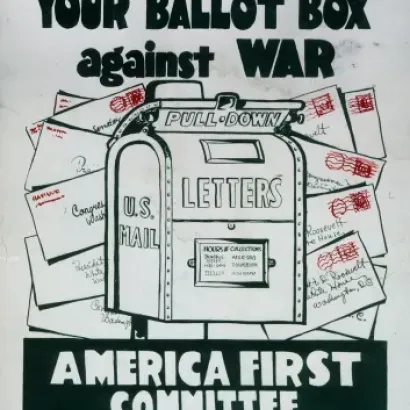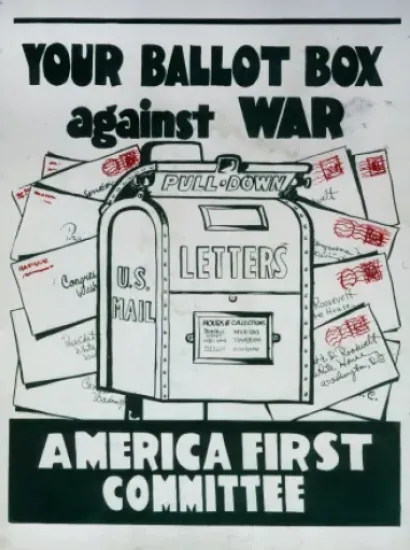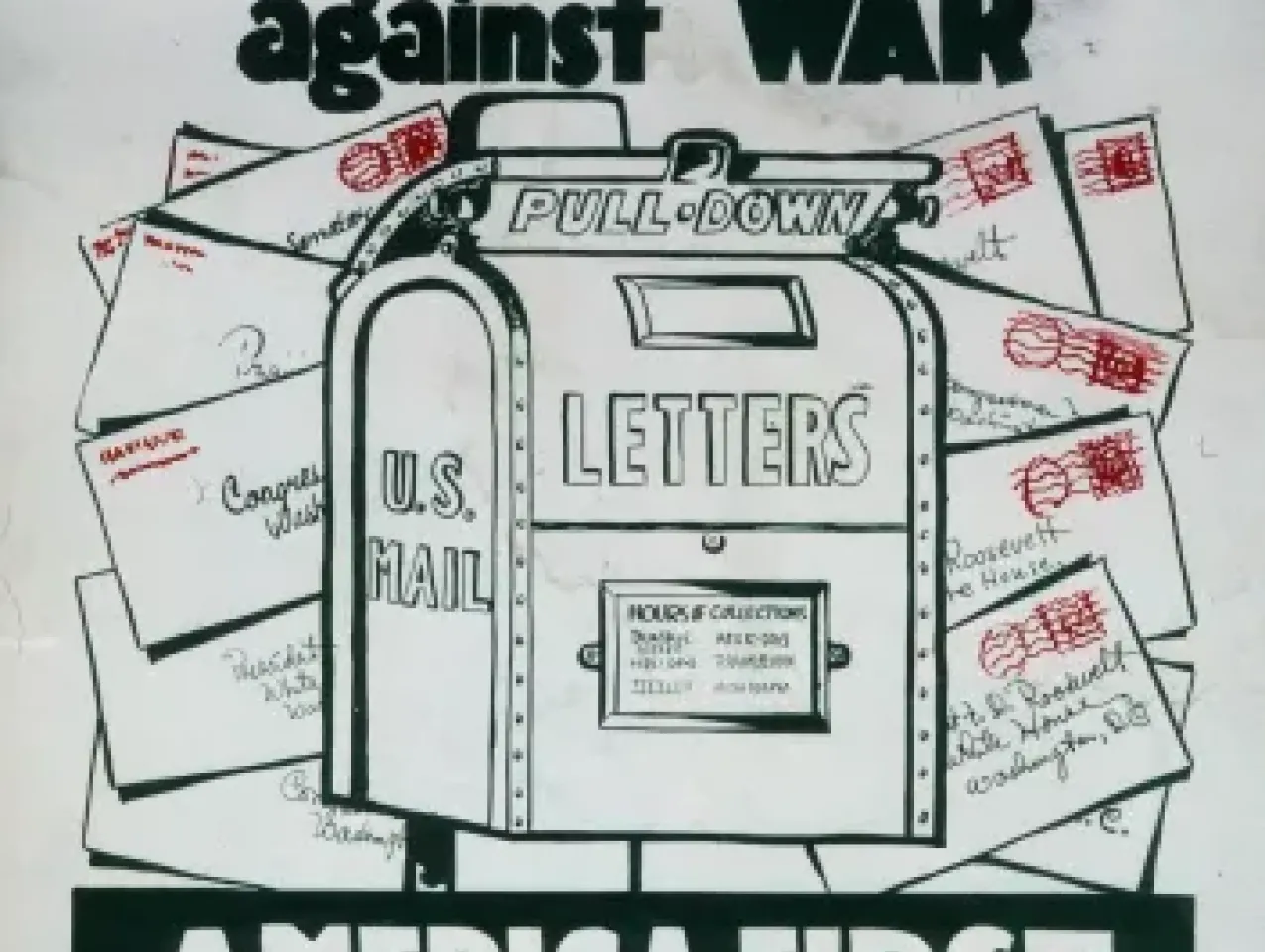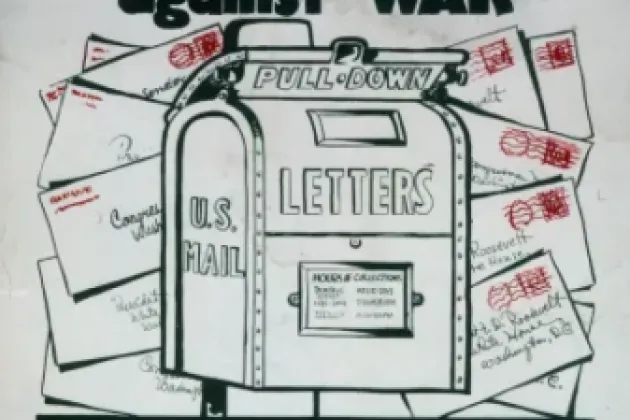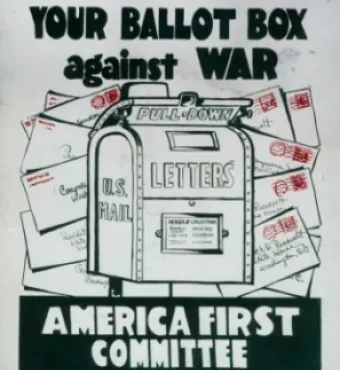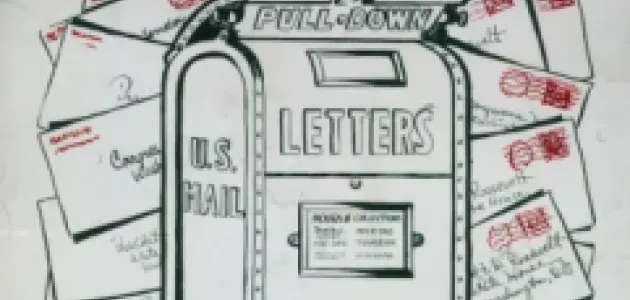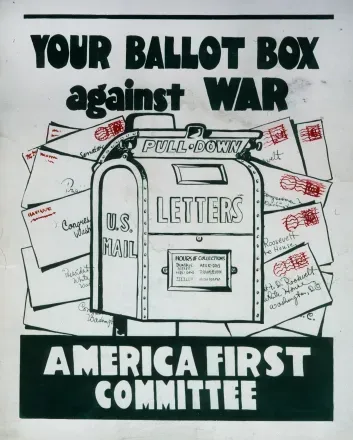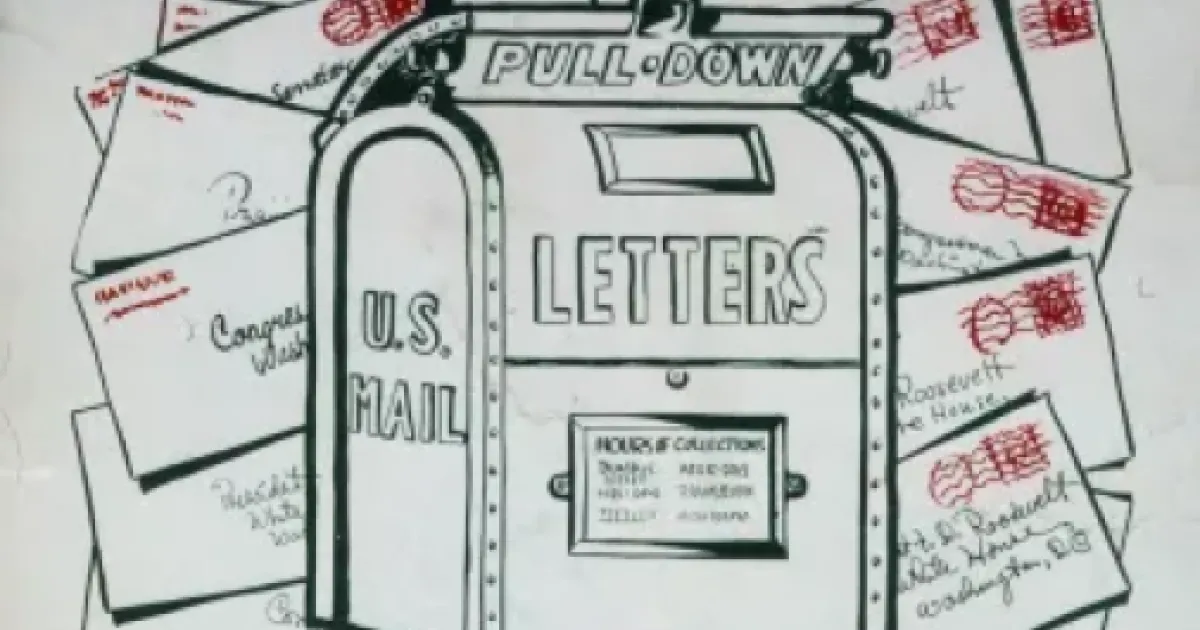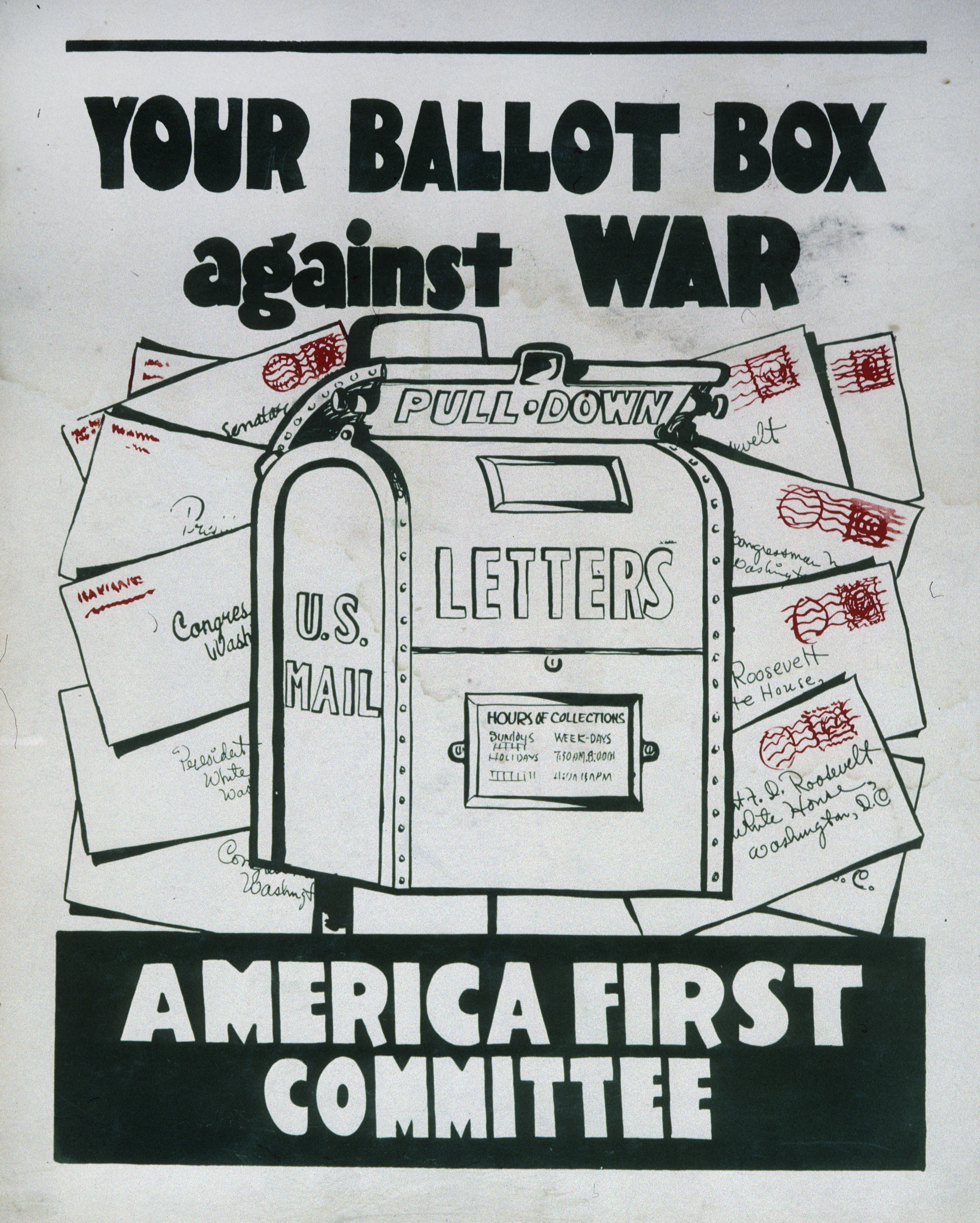
Hoover Institution Library & Archives has acquired two new collections related to its America First Committee Records. The America First Committee, active from September 1940 until the bombing of Pearl Harbor in December 1941, was the leading isolationist organization in the United States prior to America entering WWII. America Firsters held that entering a second world war would bring both economic depression and a social disintegration that would threaten the existence of democracy itself. Members argued that the Atlantic Ocean was America’s best defense and that American democracy could only be preserved by refusing to be drawn into the European conflict; aid to Britain would weaken American national defense and threaten to ensnare the US in a disastrous conflagration. The most conservative wings of the AFC believed that mobilization for a war would bring wage inflation, more federal control of all areas of production, expanded executive power, and the possibility of socialism. Overall, the aim of the committee was to unite Americans against the war despite rising fear about Hitler’s ambitions. They opened local chapters around the country, provided anti-war literature to the public, sponsored rallies, and influenced congress members and policy. The committee was emphatically non-partisan (though most members were at least moderately conservative) and not pacifist, though certainly many pacifists were members.
Hoover has acquired the papers of:
- Robert Douglas Stuart Jr., founder of the American First Committee. As a student studying government and international relations at Princeton during the Depression-era 1930s, Stuart came to believe the US had gained little but economic ruin from its participation in WWI. Dedicated to the idea that his generation would not be repeat the mistakes of the generation prior, Stuart, later studying at Yale Law School, recruited three friends (one of them was football star and later American president Gerald Ford; another was future Supreme Court justice Potter Stewart) and drew up an anti-interventionist petition aimed at college and postgraduate students. As law students, the core group first focused on policy issues: the demand that the Neutrality Act of 1939 be upheld. Roosevelt, they felt, was overexerting executive power, aiming to expand loans and shipments of goods to Britain—money and supplies that should be reserved to defend America should an attack come from Germany or another foe. As the committee's grassroots organizing expanded, the group promoted an anti-war message that warned that entanglement in a second world war would threaten the existence of American democracy itself. The movement spread quickly from New Haven to college campus across the country, and in the summer of 1940 Stuart established a base of operations in his hometown of Chicago. Once the America First Committee disbanded in the wake of the Japanese attack at Pearl Harbor, Stuart would serve as a major in the US Army during WWII. Stuart's papers contain documents, correspondence, and publicity and press materials related to the America First movement.
- Justus Drew Doenecke, an American historian, writer, professor, and a leading scholar of the America First Committee. Doenecke, Professor Emeritus at New College of Florida, is the author of In Danger Undaunted: the Anti-Interventionist Movement of 1940-1941 as revealed in the Papers of the America First Committee, which is based on the America First Committee Records held at Hoover Library & Archives. His 2000 book, Storm on the Horizon: the Challenge to American Intervention, 1939-1941, received the Herbert Hoover Book Award from the Herbert Hoover Presidential Library and Museum. He is the author of more than ten books on American history. His collection contains notes, manuscripts, and correspondence related to the America First Committee and twentieth-century American history of the WWI and WWII eras.





